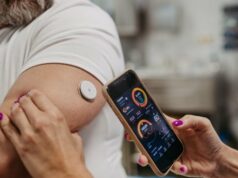
Today we hear from David Cooper and how he came off insulin, as part of our series of success stories shared each day during Diabetes Awareness Month.
David turned to our Low Carb Program after a wake-up call, which saw him being rushed to hospital with suspected diabetic ketoacidosis. That was the moment David realised he need to get his type 2 diabetes under control.
David said: “I think because of the shock Id had I knew I had to do something. Afterwards I went home and did my own research, thats when I came across the Diabetes.co.uk website and from there the Low Carb Program.”
This inspired a major shift in Davids diet and a new low carb approach where he ate more salad instead of processed meats and spiralised courgette, or courgetti, as an alternative to pasta.
He added: “Theres one recipe with sausages and lentils that my son enjoyed so much he asked me for the recipe.”
The results were impressive. Participation in the Low Carb Program led to David losing 23kg (3st 9 lbs) and coming off insulin, having reduced his HbA1c from 90 mmol/mol (10.4%) to 31 mmol/mol (5.0%), which is well below even the prediabetes threshold.
David had a family history of diabetes, with his dad sadly passing away from complications of the condition 18 years ago, so he was aware that he had an elevated risk.
The Low Carb Program is changing peoples lives for the better, with many stories like Davids highlighting the impact of a low carb approach in type 2 diabetes.
An academic study published last summer into one-year results of Low Carb Program participants demonstrated impressive results, with people losing weight, lowering their HbA1c and reducing their medications. On top of this, a quarter of the participants placed their type 2 diabetes into remission.
Diabetes.co.uk is showcasing a diabetes community success story every day in November to mark Diabetes Awareness Month. To read the case studies which have been featured so far, visit our News section.
Additionally, follow the Diabetes Awareness Month campaigns we are running on Twitter and Facebook and use the hashtag #StrongerTogether.








